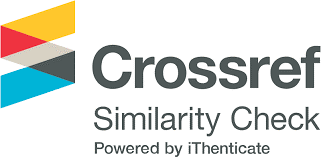Repetitive-Based Control for Selective Active Filters Using Discrete Cosine Transform
DOI:
https://doi.org/10.18618/REP.2004.1.029036Keywords:
Active filters, Discrete Cosine Transformation, Harmonic compensation, Phase-Locked Loop, Repetitive control, Selective FilteringAbstract
This paper proposes selective harmonic current compensation using a closed-loop repetitive controller. The controller is based on measuring the line currents. It performs the compensation of specific harmonics selected by a DCT (Discrete Cosine Transform) digital filter, which is self-adjusted to track utility frequency deviations by means of a Phase Locked Loop (PLL) system. Compared to conventional solutions, this approach allows full compensation of selected harmonics, even if the active filter has limited bandwidth. This method also requires a simpler algorithm than, e.g., the synchronous frame harmonic regulators and its complexity is independent of the number of compensated harmonics. Moreover, it is more appropriate for DSP implementation and less sensitive to rounding and quantization errors when finite word length or fixed-point implementation is required. Simulations and experimental results confirm the theoretical expectations.
Downloads
References
P.T. Cheng, S. Bhattacharya, D. Divan, "Control of square-wave inverters in High Power Hybrid Active Filter Systems" IEEE Transaction on Industry Applications, Vol. 34, No. 3, pp. 458-472, May/June 1998. https://doi.org/10.1109/28.673715 DOI: https://doi.org/10.1109/28.673715
P. Mattavelli, S. Fasolo, "A Closed-loop Selective Harmonic Compensation for Active Filters" IEEE Applied Power Electronics Conference Rec., New Orleans, 2000, pp. 339-346.
M. Sonnenschein, M. Weinhold, "Comparison of Time-Domain and Frequency-Domain Control Scheme for Shunt Active Filters" European Transaction on Power Electronics, Vol. 9, No. 1, pp. 5-16, Jan./Feb. 1999. https://doi.org/10.1002/etep.4450090101 DOI: https://doi.org/10.1002/etep.4450090101
J. Svensson, R. Ottersten, "Shunt Active Filtering of Vector Current-Controlled VSC at a Moderate Switching Frequency" IEEE Transaction on Industry Applications, Vol. 35, No. 5, pp. 1083-1090, September/October 1999. https://doi.org/10.1109/28.793369 DOI: https://doi.org/10.1109/28.793369
G. Casaravilla, A. Salvia, C. Briozzo, E. Watanabe, "Selective Active Filter Comparison: Shunt or Shunt Hybrid with Remote Harmonic Distortion Control", in Proc. of the 7th Brazilian Power Electronics Conf (COBEP03), Fortaleza, Brazil, September 2003, pp. 877-884.
S. Buso, L. Malesani, P. Mattavelli, R. Veronese, "Design and Fully Digital Control of Parallel Active Filters for Thyristor Rectifiers to Comply with IEC 1000-3-2" IEEE Transactions on Industry Applications, Vol.34, No.3, May/June 1998, pp. 508-517. https://doi.org/10.1109/28.673721 DOI: https://doi.org/10.1109/28.673721
F.Z. Peng "Harmonic Sources and Filtering Approaches" IEEE Industry Applications Magazine, vol. 7, no. 4, July/Aug. 2001, pp. 18-25. https://doi.org/10.1109/2943.930987 DOI: https://doi.org/10.1109/2943.930987
H. Akagi, H. Fujita, K. Wada, "A Shunt Active Filter Based on Voltage Detection for Harmonic Termination of a Radial Power Distribution Systems", IEEE Transaction on Industry Application, Vol.35, No.3, 1999, pp. 638-645. https://doi.org/10.1109/28.767015 DOI: https://doi.org/10.1109/28.767015
S. Fukuda, S. Yoda, "A novel current-tracking method for active filters based on a sinusoidal internal model" IEEE Transactions on Industry Applications, Vol. 37, No.3, pp. 888-895, May-June 2001. https://doi.org/10.1109/28.924772 DOI: https://doi.org/10.1109/28.924772
Y.Y. Tzou, R.S. Ou, S.L. Jung, M.Y. Chang, "High-Performance Programmable AC Power Source with Low Harmonic Distortion Using DSP-Based Repetitive Control Technique " IEEE Transaction on Power Electronics, Vol. 12, No. 4, July 1997, pp.715-725. https://doi.org/10.1109/63.602567 DOI: https://doi.org/10.1109/63.602567
K. Zhou, D. Wang, "Digital Repetitive Controlled Three-Phase PWM Rectifier", " IEEE Transactions on Power Electronics, Vol.18, No.1, January 2003, pp. 309-316. https://doi.org/10.1109/TPEL.2002.807150 DOI: https://doi.org/10.1109/TPEL.2002.807150
C. Rech, H. Pinheiro, H. A. Gründling, H. L. Hey, J. R. Pinheiro, "Comparison of Digital Control Techniques with Repetitive Integral Action for Low Cost PWM Inverters", IEEE Transaction on Power Electronics, Vol. 18, No. 1, January 2003, pp. 401-410. https://doi.org/10.1109/TPEL.2002.807094 DOI: https://doi.org/10.1109/TPEL.2002.807094
Y.Dote, R.G.Hoft, Intelligent Control - Power Electronic Systems, Oxford University Press Inc., 1998. https://doi.org/10.1093/oso/9780198564669.001.0001 DOI: https://doi.org/10.1093/oso/9780198564669.001.0001
G.C. Goodwin, S.F. Graebe,.M.E. Salgado, Control System Design, Prentice Hall Inc, 2001.
A. V. Oppenheim, R.W. Schafer, J.R. Buck, Discrete-Time Signal Processing, Prentice Hall Inc, 1999.
S.M. Deckmann, F.P. Marafão, M.S de Pádua, "Single and Three-Phase Digital PLL Structures based on Instantaneous Power Theory", in Proc. of the 7thBrazilian Power Electronics Conf (COBEP03), Fortaleza, Brazil, September 2003, pp. 225-230.
P. Mattavelli, F. P. Marafão, "Selective Active Filters using Repetitive Control Techniques", IEEE International Symposium on Industrial Electronics Conference. Rec., Italy, ISBN 0-7803-7370-7, 2002.
F. P. Marafão, S. M. Deckmann, J. A. Pomilio and R. Q. Machado, "Selective Disturbance Compensation and Comparisons of Active Filter Strategies", IEEE International Conference on Harmonics and Quality of Power (ICHQP), ISBN 0-7803-7672-2, 2002
Downloads
Published
How to Cite
Issue
Section
License
Copyright (c) 2004 Eletrônica de Potência

This work is licensed under a Creative Commons Attribution 4.0 International License.















